Close your eyes for a moment and take a breath. Now, what’s the first thing that comes to mind when you read or hear the word grit?
The first thing that comes to my mind is the grit that bothers my eyes, and sometimes nose, mouth, and ears when the west Texas wind blows its hefty piles of dirt and sand in sideways sheaths. I don’t love that grit, but I admire its tenacity. And even though I can’t identify any valuable purpose of getting grit in my eyes, this grit certainly has gumption and that’s worth noticing.
The next thing I think about is sandpaper grit because I have resolutely used sheet after sheet while restoring run-down furniture.
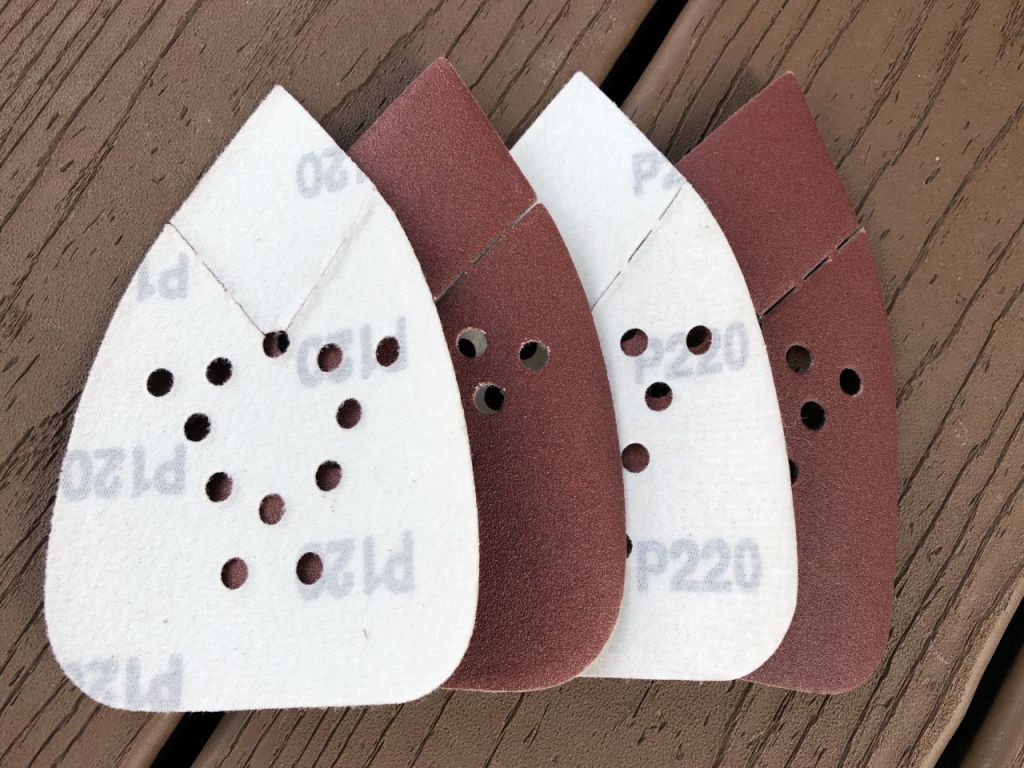
It is very rewarding to bring a desk, chest of drawers or antique icebox back to life and usability, which requires going through the grits, as they say. I appreciate the process, especially when I recall refinishing our grand piano.
When I first noticed it in the back of the music store, I thought it was black. Upon closer inspection, I realized it was not finished in black lacquer at all. Rather, it was aged and ill-cared for wood. After buying the piano and helping my husband studiously take it apart, I used coarse 50 grit sandpaper to start removing the ugly top layer of old crackled finish followed by 100 grit paper to smooth it even more. Slowly but surely, the original beauty of the straight-grained mahogany came to light.
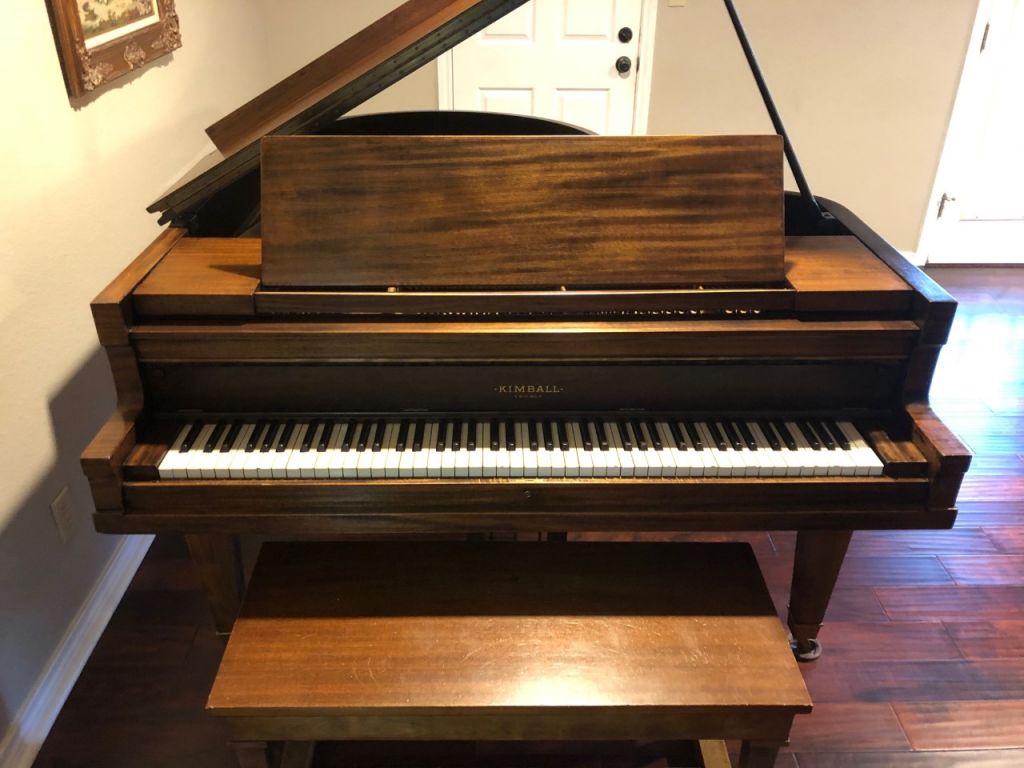
My favorite combo step before reassembling the piano was sanding with 400 and 600 grit papers, applying layers of a clear protective finish, and using steel wool to smooth everything so the beautiful wood grain would pop. Yes, refinishing the piano stirs fond memories, and the grand old lady still inhabits one end of our living room. In this case, grit served a very good purpose.
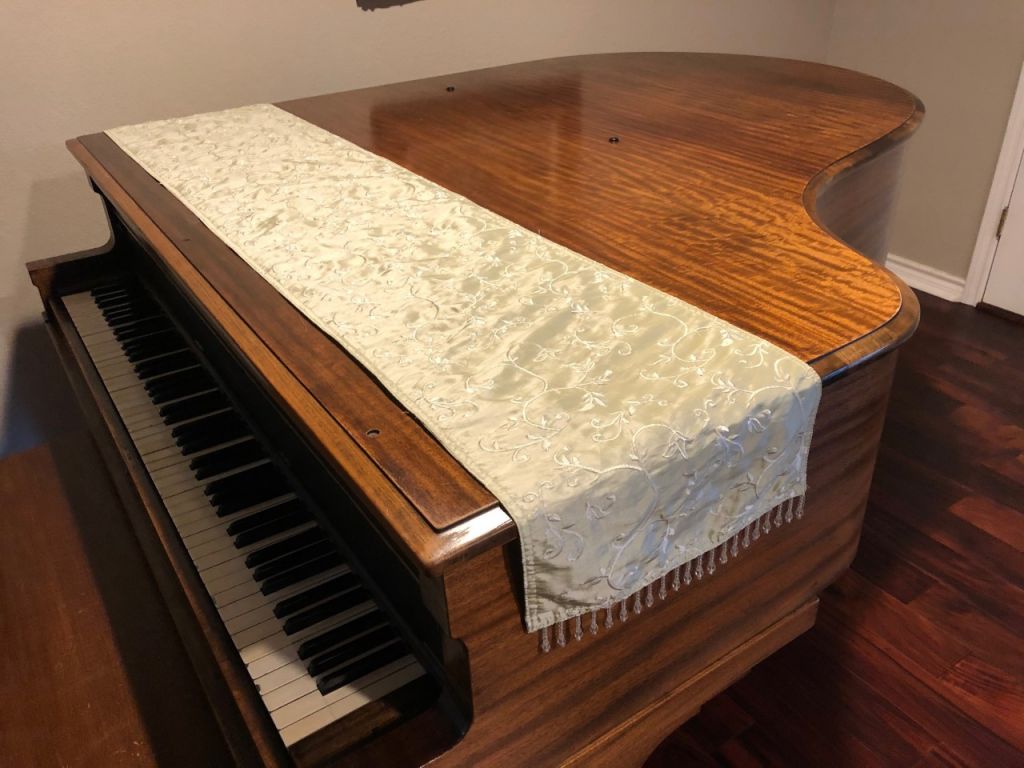
Another type of grits is actually GRITS or Girls Raised in the South. I laughed when I first heard about GRITS because my only experience of Southern girls were the ones I’d seen in movies or read about in books. These women, in my eyes, were prissy Southern Belles or Georgia Peaches. They were women who had ‘the vapors’ and attended finishing school and most definitely didn’t work like I was accustomed to working. (Pop culture is not the best educator.)
Later, when I actually met GRITS when I moved to Texas, I realized how much I admired them. Their stick-to-it-iveness through the ups and downs of life made me long to find such women in my own life story. Now, I have more strong women in my life than ever before, and these women with serious grit have served great purpose over the years.
For many of you, it’s possible that a big bowl of piping hot grits, maybe with some shrimp and butter, is the first thing that came to your mind when I asked you to think of grit. This dish was not on my radar while growing up on the west coast. Other families may have eaten them, but not mine. So, when I first tasted grits while dining in the home of a family friend, I wondered, “What is the attraction to this food?” I think my takeaway on grits is that you either like them, or you don’t. I see their purpose in life as a way of making some mouths and bellies happy but also as a reminder to be decisive and apologize to no one if you have a valid opinion.
And that leads me to recall the many times I heard my mom say that I was too opinionated. The way she said it made me think it was a very bad thing.
I will admit that I have always been a bit stubborn. When I was nine, I got the measles. I was home in bed for days, and I became quite annoyed with my long hair. It was just so hot and sticky on my neck and I was already itchy enough. So, I cut it to about shoulder length. You know, especially if you’ve done something similar in the past, that DIY haircuts rarely come out good. My mom asked me why I would do such a stupid thing. I told her that since it was my head and I was tired of it feeling hot and sticky, that I could cut off my hair.
My mom didn’t share that opinion.
Then there was the time shortly after my 15th birthday when I saw the original version of the movie True Grit and remember going home to tell my mom that I wasn’t stubborn after all. I simply had grit. I went on to sing the praises of Mattie Ross and Rooster Cogburn. She didn’t think too highly of that conversation, but I contend to this day that grit is not only a good thing, but it’s extremely helpful when dealing with chronic illness, disease or any long-term difficulty.
“Over time, grit is what separates fruitful lives from aimlessness.” – John Ortberg
You know where this is going, right?
I didn’t like receiving a Parkinson’s diagnosis any more than you, but I knew almost immediately that I had to grit my teeth and fight for every day that I could live well.

I need pluck, not luck, to research, locate a good movement disorder specialist and connect with others who are at various stages of this disease.
Is Parkinson’s like grit in my eye, serving no good purpose, but something I need to pay attention to? Yes.
Is it like the various levels of sandpaper grit, slowly wearing away at me while polishing me into something slightly different but lovely and usable? It is.
“Grit is sticking with your future day in, day out and not just for the week, not just for the month, but for years.” – Angela Lee Duckworth
And does Parkinson’s take me up and down a long, crazy road that calls for stick-to-it-iveness and role models for safe travels? Indeed, it does.
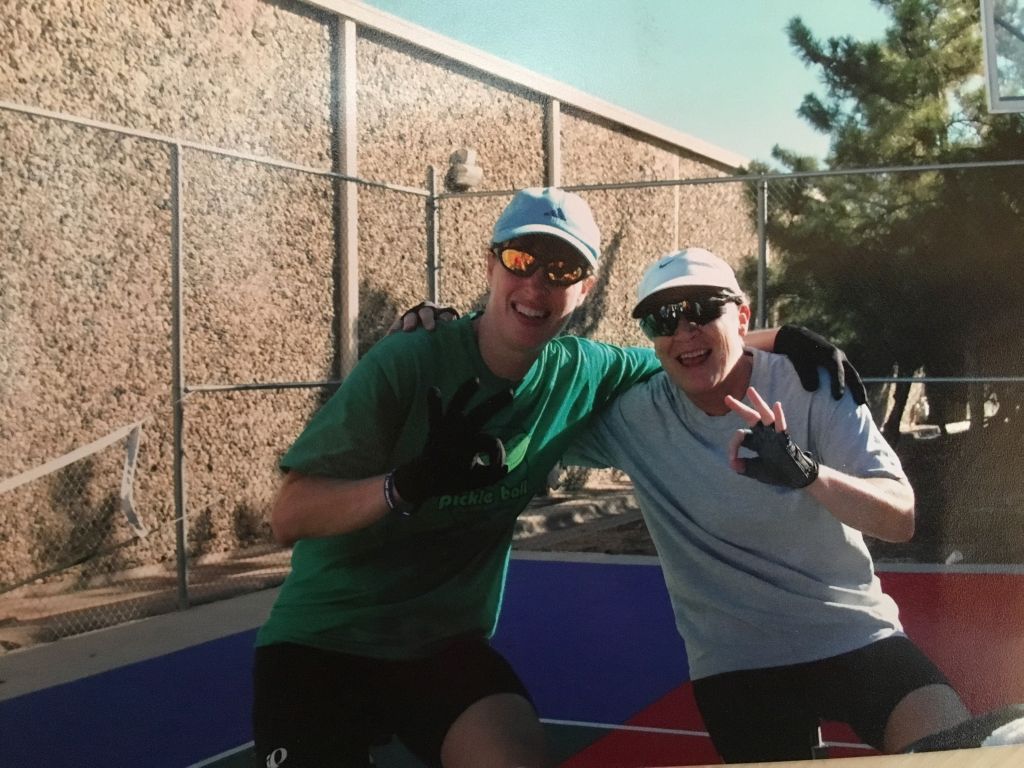
And do my opinions matter in my treatment and how I seek to live well with Parkinson’s? Every. Single. Day!
Angela Duckworth, in Grit: The Power of Passion and Perseverance, presents a Grit Scale she developed that helps you measure your grit, passion and perseverance. She explains the significance of what she calls top-level goals and how grit empowers you to reach and sustain these goals.
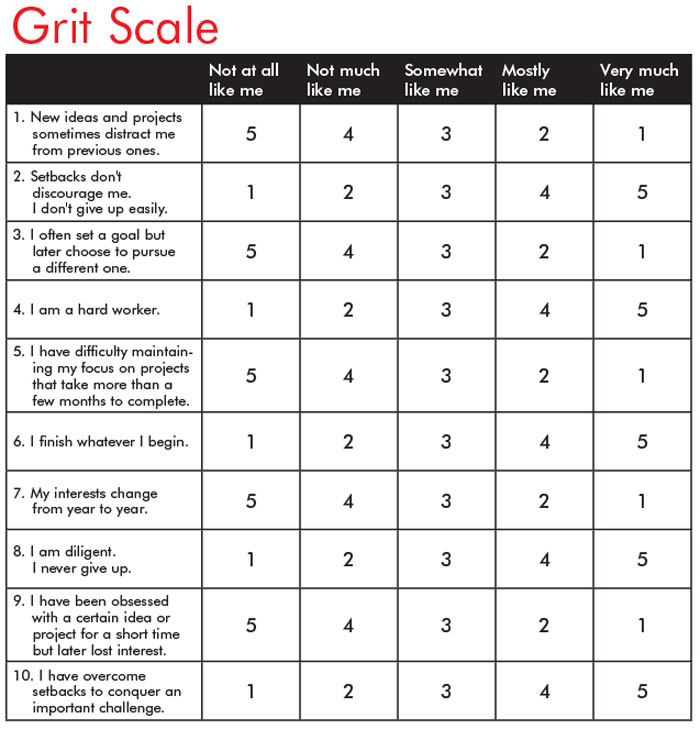
Her book may have been intended for those in business and leadership roles; however, when I read it, it felt like she was talking to all of us out here trying to live well with Parkinson’s every day.
My favorite question from Duckworth is this: “If grit can grow, how does that happen?” Interest, practice, purpose and hope are what prevail when you’re knocked down. So, when Parkinson’s knocks you down. Find the grit you need to get up, and YOU will prevail.
Hurray for being gritty, fellow persons with Parkinson’s. Set goals, listen to those who know more than you and be sure to evaluate all available information when it’s time to make a serious change in lifestyle or treatment. This is your life, your Parkinson’s journey. May you rise to the challenge of living well with Parkinson’s and conquer each obstacle with your very own true grit.
This post was written by the Davis Phinney Foundation and Davis Phinney Foundation Ambassador Lorraine Wilson.
This blog post is sponsored by US World Meds. To learn more about their products, click here. To learn about their medication for advanced Parkinson’s, visit here.



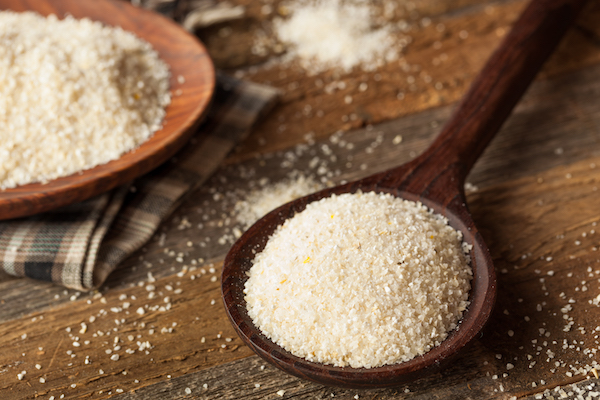
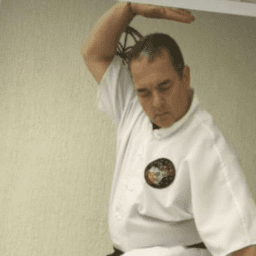

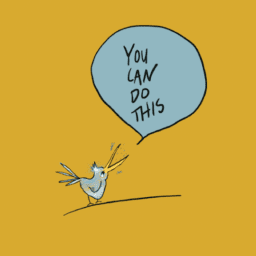
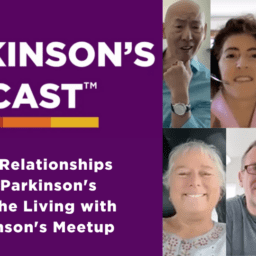
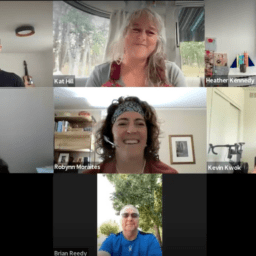
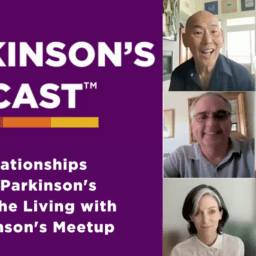
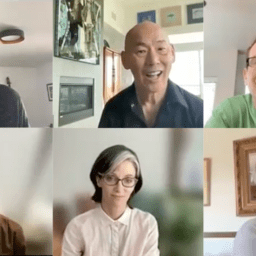
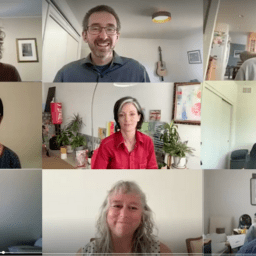




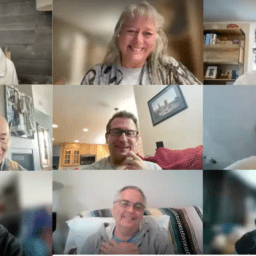

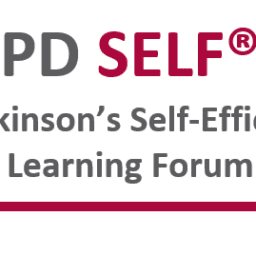
oh I do love me some goooood metaphors, and the piano is one of the best ever! and the DIY haircut isn’t too bad either! delightful! thank you Lorraine.